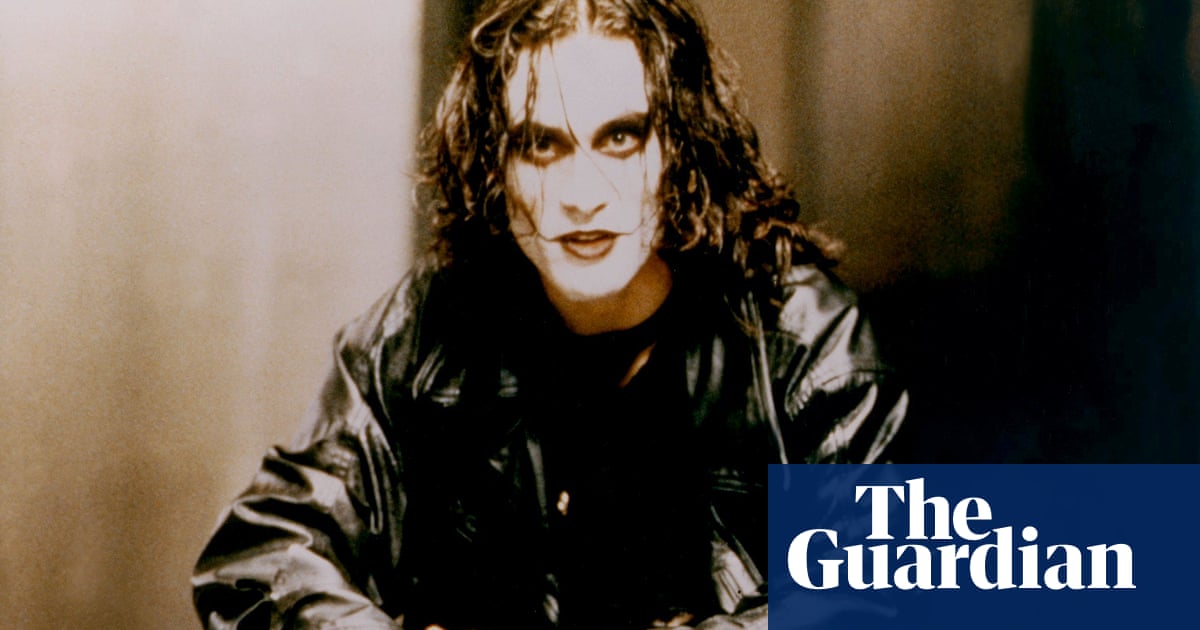
If you ask actor Toby Jones what he did all day, the answer will often be a whole load of nothing. “You spend a lot of time waiting in my job. A lot of time hanging around,” he says, before detailing the previous day’s 11-hour schedule of kicking about on a Budapest industrial estate, punctuated by two brief stints shooting “quite a casual scene – me and the lead actor, in a car”.
It sounds like nothing much and yet clearly it’s something. At 56, Jones is widely considered to rank among Britain’s finest actors. Ever since his screen debut as “second valet” in Sally Potter’s Orlando 30 years ago, he has been in continuous demand: for spectacular Hollywood blockbusters, tiny independent art films and everything in between. As he summarises with characteristic humility: “On the whole, I get to do stuff that is really good and I don’t have to do a lot of stuff that isn’t very good.”
So when we meet in a Parisian-style cafe off London’s Piccadilly, it is to discuss not one new project but four. There’s The Wonder, a beguiling period drama on Netflix now, in which Jones plays a doctor who alternately aids and hinders Florence Pugh’s miracle-investigating nurse; The Pale Blue Eye (out 23 December), an Edgar Allan Poe-inspired gothic mystery in which he’s the military surgeon who alternately aids and hinders Christian Bale’s sceptical detective; and Empire of Light (out 9 January), Sam Mendes’ ode to cinema, set in the early 80s, in which Jones is a projectionist whose character arc helpfully mirrors that of Olivia Colman’s protagonist.
It’s the return of Detectorists, however, for a feature-length Christmas special, that will most excite the Jones superfans. The Danebury Metal Detecting Club was first introduced on BBC Four in 2014, and over three sun-dappled series, the amateur archeologist duo of Lance (Jones) and Andy (show creator Mackenzie Crook) gently excavated themes such as community, mortality and ambition.
In 2019, Detectorists appeared alongside Fawlty Towers and Blackadder in Radio Times’ list of the 20 all-time greatest British sitcoms, the only entry to have originated after 2010. So even in a career as laden with gems as the Sutton Hoo site, this show is especially treasured. Crook and Jones agreed on that when they reunited to film the first new episode in five years: “Loads of people have contacted me and contacted him during lockdown about what a comfort and a consolation they found the show. The writing is kind of faultless.”
One of the show’s many pleasures is Lance and Andy’s lived-in friendship, yet Jones and Crook were near strangers until filming began: “We later worked out we’d been in about five or six of the same movies without ever having really met. We’d see each other in airports, one flying in and one out.” Their shared credits included the 2010 Ian Dury biopic Sex & Drugs & Rock & Roll, and 2011’s The Adventures of Tintin, but it wasn’t until 2014’s Muppets Most Wanted that their paths actually crossed. During another of those interminable on-set waits, Crook made his pitch: “We were just sitting there, and he’s very shy, and he went, ‘I hope you don’t mind, I’ve written this thing with you in mind, and I know that’s a nightmare, when someone says they’ve written something, and I don’t want you to feel under any obligation or anything …’ Anyway, he sent me three pages of this amazing dialogue. It was very, very funny but it wasn’t demanding to be laughed at, you know? Not gag, gag, gag. It’s like the show; it’s there if you want it.”
Jones winces when I ask if he also considers himself a writer: “I come up hard against the self-loathing of the first draft. Once we get to the second draft I’m OK.” But he clearly knows a good script when he reads one. He has also recently revived his writing collaboration with the playwright Tim Crouch. In 2019, they produced Don’t Forget the Driver, a criminally under-appreciated six-part BBC Two comedy series about a Bognor Regis coach driver (Jones) who discovers an asylum-seeker stowed away in his luggage compartment. They wrote a second series that got canned due to Covid (“heartbreaking”), but Jones says the pair’s new project “won’t be entirely unrelated to some of the themes, because they’re themes that are very much of now”.
Hopefully he will also write himself another lead role because, if there’s one problem with Toby Jones’s screen output, it’s that there’s not enough Toby Jones in it. When he has had the lead – as with his Truman Capote turn in Infamous, the BBC films Marvellous and Danny Boy, and Peter Strickland’s 2012 psychological horror Berberian Sound Studio – it has always resulted in exceptionally good drama. So has he considered storming into his agent’s office and declaring, “I’m never doing another supporting role again! I want the lead or nothing”?
“Er … have I considered that? No, I don’t think I’ve considered that. I think, if a script is good, there’s a lot of reasons for doing it, just to be associated with it. As long as there’s an arc to be found, it’s worth doing.” There are no small parts, he says, only a small-minded approach to the work: “I sort of feel, and maybe all actors feel, that you have everyone in you. And I think there’s almost a political dimension to that, about not seeing people as small. Everyone has huge potential, and rooms that they may not even know in their personalities, to go into.”
These are topics Jones has reflected on for longer than most, since acting runs in the family. His father, Freddie Jones, was well-known for David Lynch’s 1980 film The Elephant Man and as Sandy Thomas in soap opera Emmerdale, while his mother Jennifer Jones (née Heslewood) came from “a long line of actors, going back over 100 years”. Growing up near Oxford, as the eldest of three sons who’ve all gone into the business in some capacity, dinner table conversation was never “about academic ideas”; instead “they’d talk about emotions and stuff”, which teenage Toby “found profoundly embarrassing”.
These days, most of his social circle, including his barrister wife Karen, are not actors. His children complain that he is not showbiz enough, and should be getting them more invites to cool parties. Yet for all his humility, Jones is still an actor’s actor. It’s in his blood. And as such, the last thing you’ll get him to admit to is a particular character type that he’s most suited to playing (“The whole joy of my job is the sheer variety”), or any awareness of how the world sees him. He says he doesn’t even watch his own past work if he can help it. There is, however, one common thread in several recent roles that Jones recognises in himself: “I am quite meticulous as a person. I often find myself preoccupied with detail.”
As Lance is about Saxon artefacts, or Norman is about cinema etiquette, so Toby is about the nuances of human character: “I am, whether I like it or not, fascinated by what people do, how they do it, why they do it.” Where he differs significantly from the slightly awkward, introverted men he often plays on screen, is in a stylish ease of manner. He has a signature pork pie hat that he’s been wearing – and werking – for at least the last 15 years. I remember it from a previous interview for a magazine feature on up-and-coming British actors in which, I remind him, he shared a double-page spread with Tom Hardy. “Oh yeah … whatever happened to him?”
Jones has developed the intense cultural passions of his younger years, continuing to collect records and go to local gigs in whatever town he finds himself in – albeit with diminishing returns. “I read that new book Nick Cave has done with Sean O’Hagan, Faith, Hope and Carnage. An extraordinary book. Incredible. And he was talking about a kind of boredom with listening to music now compared to adolescence, when the urgency was just fundamental and it’s life or death. I had that with music, definitely. And I think I’m always chasing that.” On a recent day off in Budapest, he stumbled across the one record shop in the city he’d yet to visit: “I was there for about 20 minutes, looking through all this dreadful Hungarian disco, before I thought, ‘What am I doing here?’ And I think I’m just chasing that old feeling. I still have extraordinary moments, seeing a play or a movie, or a gig. But they’re rarer.”
This is where the acting comes in, because in Jones’s telling of an actor’s life, even the boring bits sound like a romantic adventure: “To be driving out at four in the morning to some remote place … Or to get off a plane in the Czech Republic and there’s a driver there and you get in the car but you can’t speak any Czech … I’m still sort of in love with disappearing into this parallel world.”
Detectorists is on BBC Two at 9pm on 26 December












